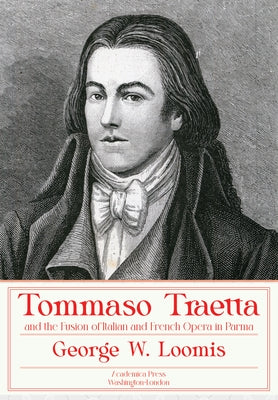Before you leave...
Take 20% off your first order
20% off
Enter the code below at checkout to get 20% off your first order
Discover summer reading lists for all ages & interests!
Find Your Next Read

In 1759, the court of the Italian Duchy of Parma adopted the inspiration of cultural creators who recommended a reform of Italian opera along French lines. These writers favored combining Italian-style music with the wider range of musical genres and scenic variety of French opera. As the music critic and commentator George W. Loomis shows in this groundbreaking volume, the young composer Tommaso Traetta was engaged to create new operas responding to these demands. As Loomis deftly demonstrates, Traetta's operas were largely oriented toward the formal aria, a byproduct of making Italian music an essential component of this cross-cultural fusion. Nevertheless, they were strikingly innovative in their use of chorus, integrated dance, and accompanied recitative. Structurally, the operas reflect the French distinction between scenes of action and divertissements. After a brief flowering, the project was abandoned, primarily for lack of interest, but Traetta's Parma operas deserve a previously unrecognized place in the history of Western music for their stimulation of opera seria in Italy and beyond. This included the works of Wolfgang Amadeus Mozart, whose genre-defining Idomeneo (1781) proved a turning point in the development of opera.
Thanks for subscribing!
This email has been registered!
Take 20% off your first order
Enter the code below at checkout to get 20% off your first order